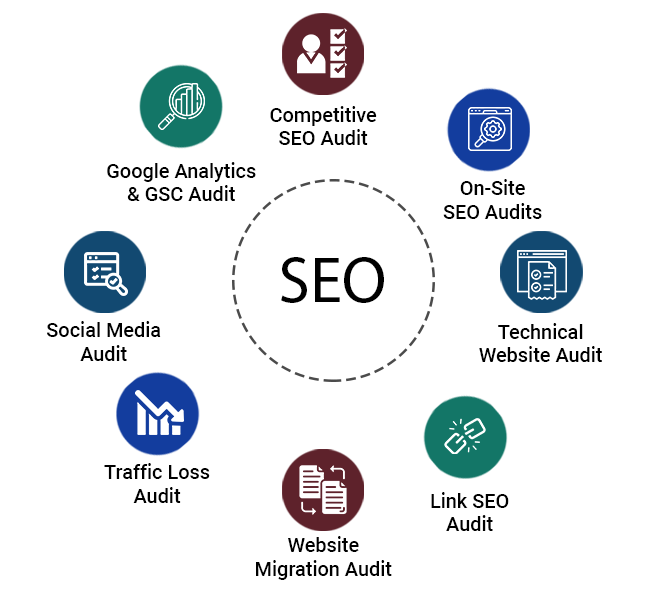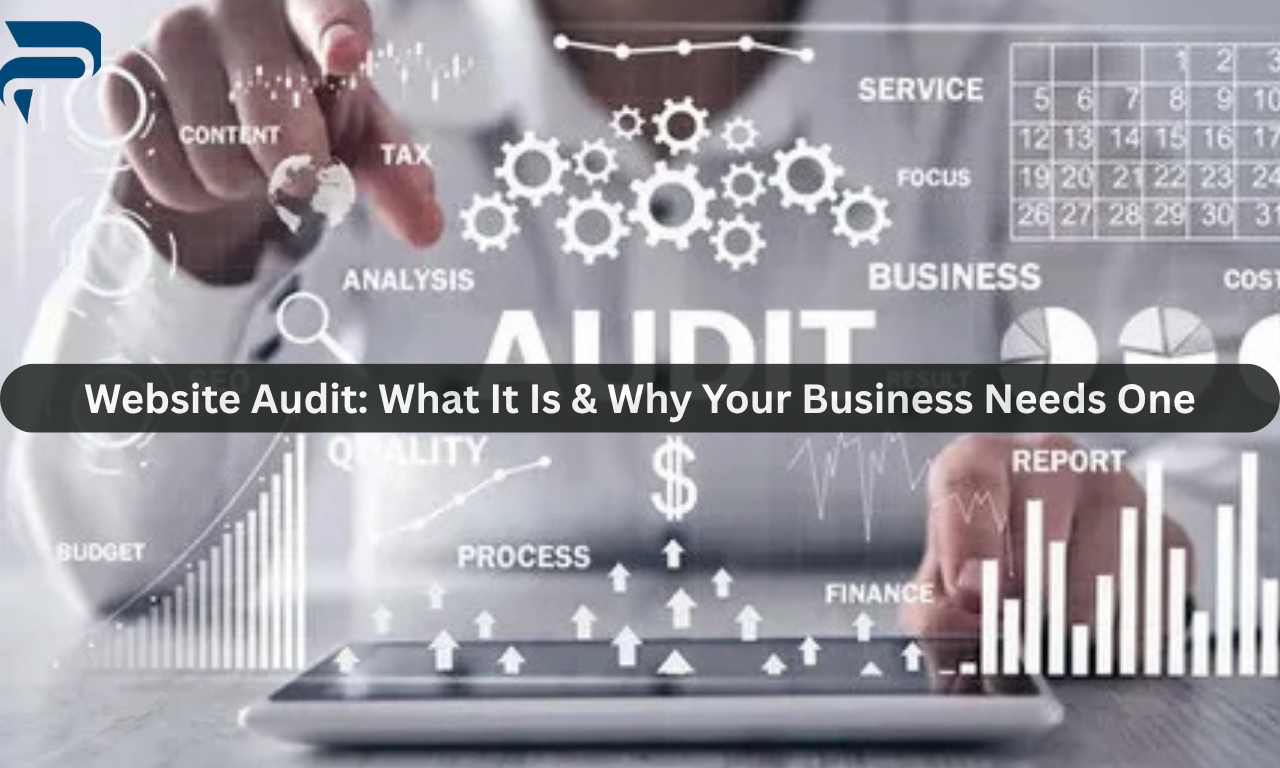If your online presence isn’t delivering results, a website audit can make sure it’s making the right one and filling your gaps. For Businesses, it’s a crucial step to ensure that not only looks professional but also performs efficiently in attracting and converting visitors.
Investing in a website audit is only a one-time activity that provides insights for continuous growth. It provides actionable insights, ensuring that your website evolves with changing market trends, improving online visibility, and ultimately drives higher conversions and revenue.
What Is a Website Audit?
A website audit is the foundation for improving your online presence, helping businesses uncover hidden issues that affect performance or hurt your search rankings. During a website audit, examine multiple facets of a website, including technical infrastructure, design, content quality, SEO, and user experience. Technical issues such as broken links, slow-loading pages, and mobile responsiveness problems can be detected and fixed to enhance visitor satisfaction and turn them into loyal customers.
Types of Website Audits
Not all website audits are the same—different types focus on specific areas of your website. By understanding the types of website audits, businesses can target improvements that have the greatest impact on performance and conversions.
-
SEO Audit

Optimizing your website for search engines starts with identifying the gaps that prevent your pages from ranking higher. SEO audits focus on search engine optimization, evaluating keyword usage, meta tags, site structure, backlinks, and content relevance – improve your website’s visibility in search engines and attract more organic traffic.
2. Technical Audit
Technical issues can silently damage your website’s performance and user experience—finding them is crucial. Technical audits analyze the backend of your website, including server performance, crawl errors, broken links, site speed, and mobile responsiveness to ensure that your website functions smoothly and is accessible for both users and search engines.
3. Content Audit
A content audit reveals which pages resonate with your audience and which need improvement. It examines all website content, from blog posts to landing pages, to ensure that it is content aligned with your business goals and SEO strategy, helping improve visitor engagement and conversion rates.
4. Design Audit
A website’s design isn’t just about aesthetics—it impacts usability, engagement, and conversions. It can evaluate the visual and functional elements of your site, including layout, navigation, typography, and your brand consistency. A design audit ensures that your website is user-friendly and creates a professional impression.
5. Performance Audit
Your website’s speed and reliability directly affect user experience and search rankings. Performance audits take a holistic view of the website’s overall functionality, combining elements of speed, security, usability, and conversion optimization that prevent your site from achieving its full potential.
Top 10 Factors to Analyze in Your Next Website Audit
Every website has areas that can be optimized—analyzing these top factors ensures nothing is overlooked and improves user experience. By analyzing these top 10 factors in your website audit, you can attract visitors and convert them into loyal customers.
1. Website Speed & Performance
A slow website can frustrate visitors and drive them away before they see your content. Fast-loading pages not only reduce bounce rates but also keep your visitors engaged. Tools like Google PageSpeed Insights can help identify slow pages and optimization opportunities.
2. Mobile Responsiveness
A responsive website adapts effortlessly to different screen sizes, improving usability and engaging the visitors. A poorly responsive design can make your website look cluttered, reduce engagement, and harm your brand image.
3. User Interface & Experience
Enhancing your website’s interface and overall experience keeps visitors engaged and encourages visits. A clear, intuitive interface improves navigation, engagement, and conversions. Poor UX can lead to frustrated visitors and lost opportunities.
4. Security & Data Protection
Security issues can damage your reputation, compromise data, and harm your search engine rankings. Protecting your website from threats — SSL certificates, secure hosting, and software updates will protect your site and build trust with users.
5. Third-Party Integrations
Third-party tools can enhance your website, but they can also create security issues if not managed properly. Check plugins and tools for compatibility, performance, and unnecessary integrations that can slow your site.
6. Platform & Technology Check
A website audit, focusing on the systems, software, and frameworks that power your website. Ensure your CMS, themes, and hosting environment are up-to-date and scalable for future growth – keeping your website efficient, competitive, and ready to meet evolving business demands.
7. Image Optimization
A website audit checks whether your images are sized, compressed, and formatted correctly to enhance loading speed without sacrificing quality. Using the correct formats, such as WebP or optimized JPEGs, reduces bandwidth usage and improves overall website performance.
8. Content Optimization & SEO
Content optimization is more than keywords—it’s about delivering value, improving user experience, and search visibility. Overusing or misplacing keywords can harm your SEO, so optimization focuses on a natural approach that benefits both search engines and users.
9. Accessibility & Compliance (ADA/WCAG)
A website that is accessible ensures that all users can easily navigate and interact with content. Make your site accessible to all users, including those with disabilities, and compliant with regulations.
10. Database & Backend Efficiency
A website’s backend powers its performance—efficient databases ensure smooth operation and prevent slowdowns. Proper indexing, regular backups, and secure storage protect critical business and customer information, ensuring your website can meet both user expectations and business objectives efficiently.
How Can PS TECQ Boost Your Website?
With PS TECQ, your website audit becomes a roadmap to improved traffic, engagement, and conversions—to ensure your site performs at its best. Whether it’s improving page speed, enhancing mobile responsiveness, optimizing images, or refining content, their expertise transforms insights into actionable strategies, enhances user experience, boosts SEO performance, and achieves measurable growth online.
Next Steps for Your Website Success
Taking action after your website audit is crucial to boost performance, improve user experience, and drive growth. Regularly monitor performance and test integrations to ensure your website continues to deliver results. Contact us today and implement these changes for measurable success.


